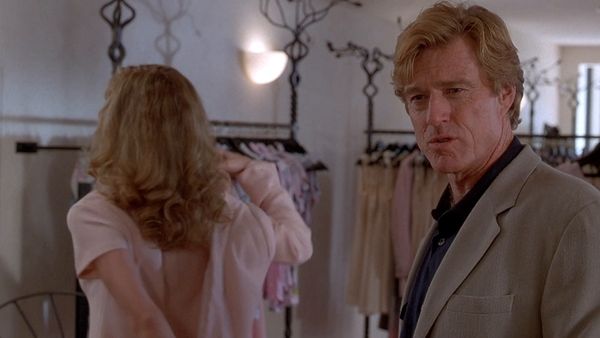Something to Talk About (1995)

omething to Talk About is a charming and insightful romantic comedy-drama that offers a nuanced exploration of relationships, trust, and self-discovery. Released in 1995 and directed by Lasse Hallström, the film features a captivating performance by Julia Roberts, alongside a strong supporting cast that includes Dennis Quaid, Sally Field, and Robert Duvall. With its blend of humor and heartfelt moments, the film resonates with audiences, making it a memorable entry in the genre.
The story revolves around Grace King Bichon, portrayed by Julia Roberts, who leads a seemingly idyllic life as a successful horse trainer in a close-knit Southern community. Grace’s life takes a dramatic turn when she discovers that her husband, Eddie (played by Dennis Quaid), has been unfaithful. This revelation serves as the film’s catalyst, shattering the foundation of trust that Grace had built in her marriage. As the narrative unfolds, viewers are drawn into Grace’s emotional journey as she grapples with her feelings of betrayal and seeks to reclaim her sense of self.

What makes Something to Talk About particularly engaging is its exploration of the complexities of marriage and the impact of infidelity. Grace’s initial shock and heartbreak evolve into a quest for empowerment as she navigates the painful aftermath of her husband’s betrayal. The film skillfully balances moments of drama with humor, allowing audiences to connect with Grace’s struggle while also providing lighthearted relief. This blend of tones creates a rich narrative that captures the ups and downs of love and relationships.

The character of Grace is particularly well-developed, showcasing her growth throughout the film. Initially portrayed as a devoted wife, she gradually begins to assert her independence and confront the realities of her situation. With the support of her strong-willed mother (Sally Field) and father (Robert Duvall), Grace embarks on a journey of self-discovery that emphasizes the importance of self-worth and personal agency. The film highlights the generational differences in attitudes toward marriage, illustrating how Grace’s experiences shape her understanding of love and commitment.

Visually, Something to Talk About is beautifully crafted, capturing the lush landscapes of the Southern countryside. The cinematography enhances the film’s warm and inviting atmosphere, drawing viewers into Grace’s world. Natural light and vibrant colors complement the themes of renewal and self-empowerment, creating a sense of intimacy that resonates throughout the film.

The screenplay, written by Callie Khouri, is sharp and insightful, filled with relatable characters and witty dialogue. Khouri, known for her work on Thelma & Louise, brings a nuanced understanding of female relationships and personal growth to the forefront. The film’s humor is both subtle and poignant, effectively balancing heavier themes with moments of levity that keep the audience engaged.
Upon its release, Something to Talk About received mixed reviews from critics but was well-received by audiences, particularly for its relatable story and strong performances. Julia Roberts’ portrayal of Grace earned praise for her ability to convey emotional depth while maintaining her trademark charm. The film’s exploration of infidelity and its impact on relationships sparked conversations about trust and communication, making it relevant to many viewers.
In conclusion, Something to Talk About is a thoughtful and engaging film that tackles complex themes of love, trust, and self-identity. Through Grace’s journey of self-discovery following her husband’s betrayal, the film invites viewers to reflect on the importance of honesty in relationships and the power of personal agency. With its blend of humor and heartfelt moments, Something to Talk About remains a memorable exploration of the challenges and triumphs of love, family, and finding one’s voice. Ultimately, the film serves as a reminder that even in the face of betrayal, there is always an opportunity for growth, renewal, and the chance to rediscover one’s true self.











